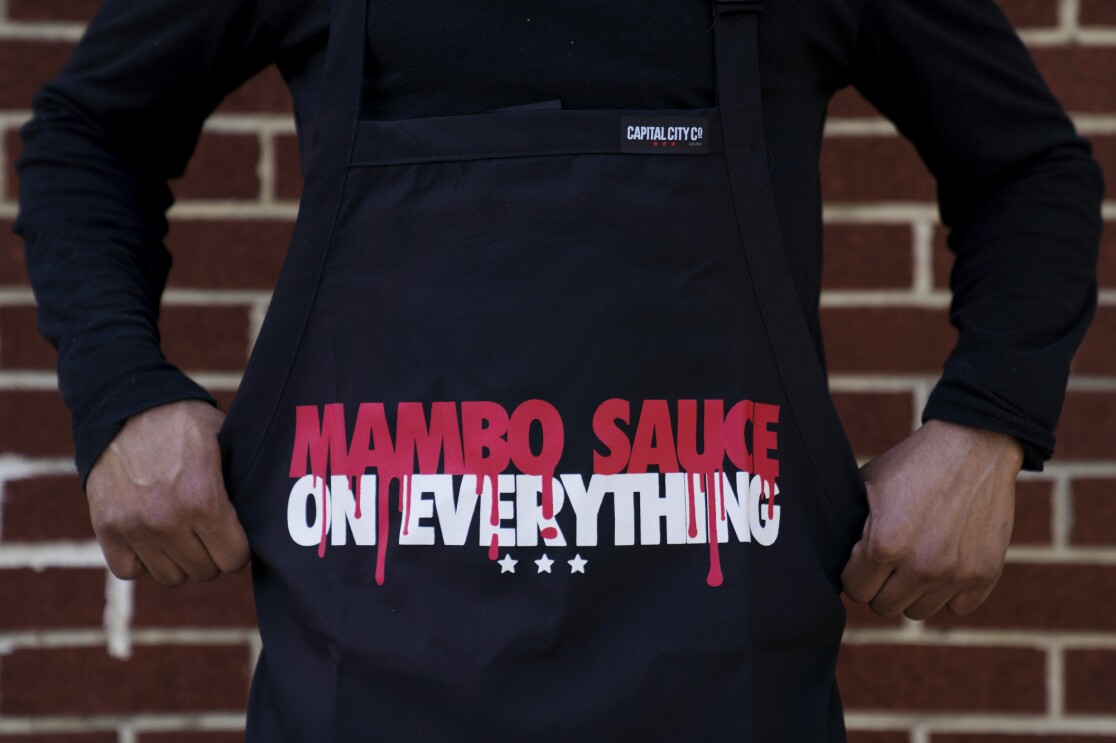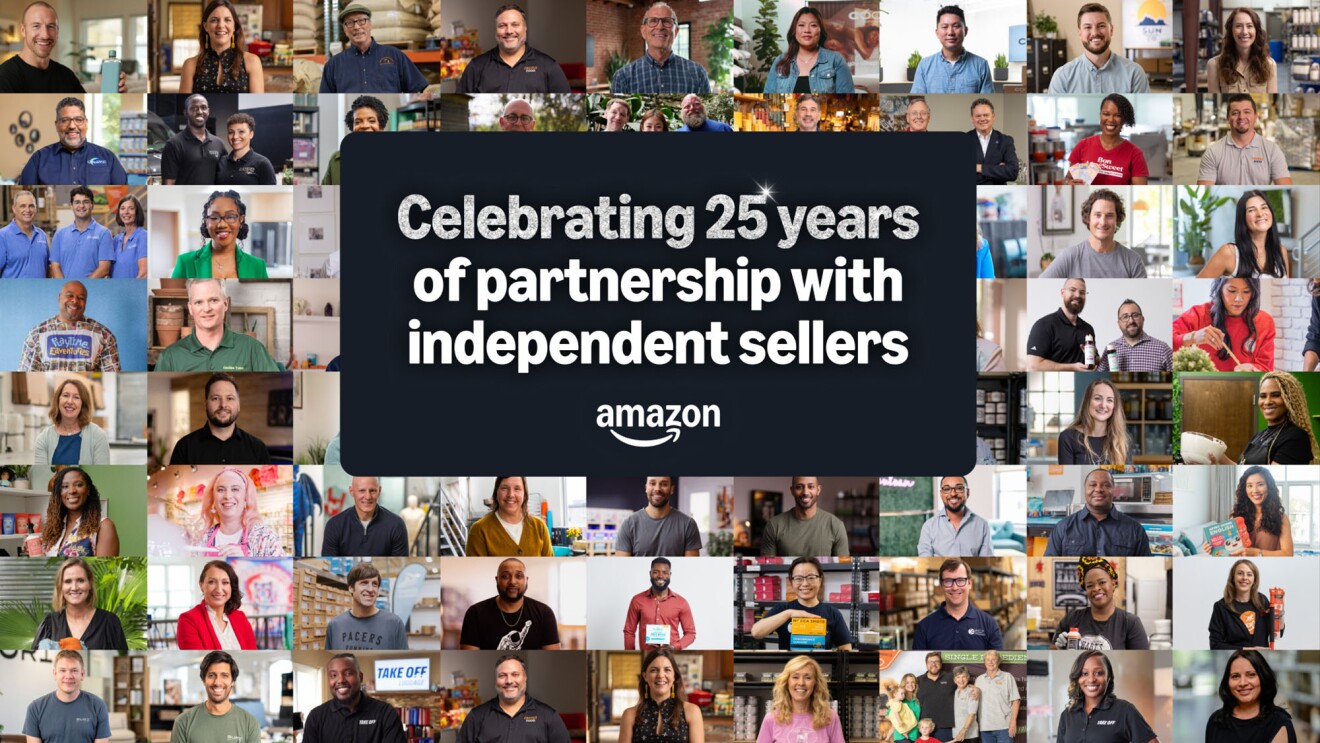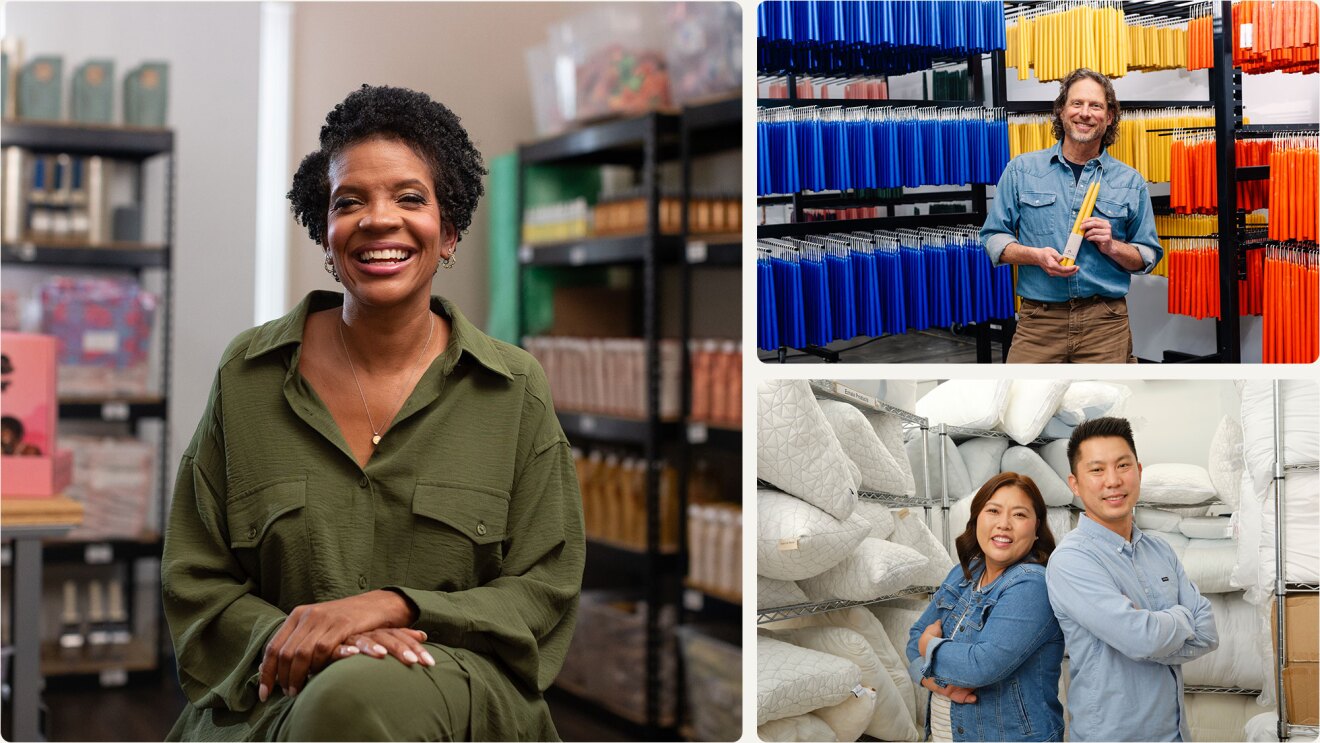Arsha Jones isn’t alone. She feels her ancestors as a wind at her back, and she strives to honor the memory of her late husband by making the most of the business they started a decade ago in their kitchen. She’s showing her sons that goals, ambition, and even joy can flourish alongside grief.
 Photo by ERIC THAYER
Photo by ERIC THAYERCrucially, as she works to make the case that her Capital City Mambo Sauce deserves a spot on the shelves of every grocery store in America, she’s got Amazon customers vouching for her—in the form of thousands of overwhelmingly positive ratings for both her Mild and Sweet Hot sauces.
“Amazon has completely blown my business out of the stratosphere. I’ve been able to put my product in front of customers that I would not be able to reach,” said Jones, who grew up in Washington, D.C. and now runs her business out of her own warehouse in Bowie, Maryland. “I am blown away that someone on the other side of the country can buy my product in the morning and get it that evening.”
01 / 03
What started as a home-based, husband-and-wife business now has four full-time employees and four part-time employees.
“I’m glad that I can take care of myself. But I think my biggest source of pride comes from the growth that I’ve seen in my team,” said Jones. “Many of them came, and they were young, or they were looking for something different. They are proud of the work they do, and they know that whenever they see Mambo Sauce on a TV commercial, or on Amazon, or just floating down their timeline on Instagram, that they had something to do with that.”
01 / 02
Growth was not a foregone conclusion, especially not the nationwide surge in demand Jones is experiencing in retail stores and on Amazon. Capital City Mambo Sauce is her personal twist on a wing sauce that’s beloved in her native D.C. but practically unknown elsewhere. It falls directly between barbecue and sweet-and-sour sauce, with a hint of zest, and based on frequent-but-unscientific testing conducted to write this story, a drizzle of the Sweet Hot sauce improves the flavor of just about anything you might eat for dinner—including (somehow) a slice of pizza.
 Photo by ERIC THAYER
Photo by ERIC THAYERJones said Amazon reviews have been key to convincing people outside of D.C. to give her products a chance. “Potential new customers who have maybe never heard of our products can read through and say, ‘Wow. There seems to be a huge amount of interest around this brand. Let me check it out and see what the hype is about.’”
Thanks to tools Amazon makes available to selling partners like Jones, California has become one of her biggest markets. “Our plan for growth is very strategic, so any information we can use to say, ‘Hey, this is the next area we should be targeting’ is definitely a hidden gem that people don’t always get about Amazon.”
She added, “Amazon is a great starting point for any smaller brand. Because I’m telling you, those barriers to get into retail? Those hurdles are high. Programs like Fulfillment by Amazon removed the barriers that used to be in place for many of the smaller sellers. And then on top of that, the Black Business Accelerator (BBA) strengthens those opportunities, because it adds in the educational aspect, it adds in funding, and it adds in access. I’m glad Amazon did it.”
Black entrepreneurs have less access to capital, mentorship, and growth opportunities. They are also significantly underrepresented in retail. According to the U.S. Census Bureau, only 6% of U.S. retail businesses have a Black owner—even though Black Americans make up roughly 14% of the U.S. adult population.
The BBA is a $150 million pledge by Amazon that explicitly targets barriers to access, opportunity, and advancement created by systemic racism across America and provides capital, mentorship, and marketing support to thousands of Black-owned businesses.
01 / 02
For Jones, her success with Capital City needs to be seen in the context of her heritage and America’s history.
“My family, of course, were slaves. But once they were freed, they transitioned into becoming sharecroppers. So, I come from a family of entrepreneurship and food. Definitely the DNA of entrepreneurship has come down through generations,” she said. “Some part of me feels that this plan for my life was laid out before I was even here. I’m not a business major. I don’t sit around and read business books. I sit down and I think, ‘What makes sense?’ And I just go with that.”
She thinks, too, about what she’ll pass on to her children.
“I’m hoping that they get to see what it means to work hard, to set your goals, and to see the fruits of your labor realized. With their father passing, I hope they’re able to see that when you do have hard times, you can still get through them,” said Jones. “As a family, you sit together, and you figure it out. The only thing I ever promised them is that I will keep trying. And so, I’m hoping they take away [the idea] that things will never be easy, but that they need to keep going.”
















